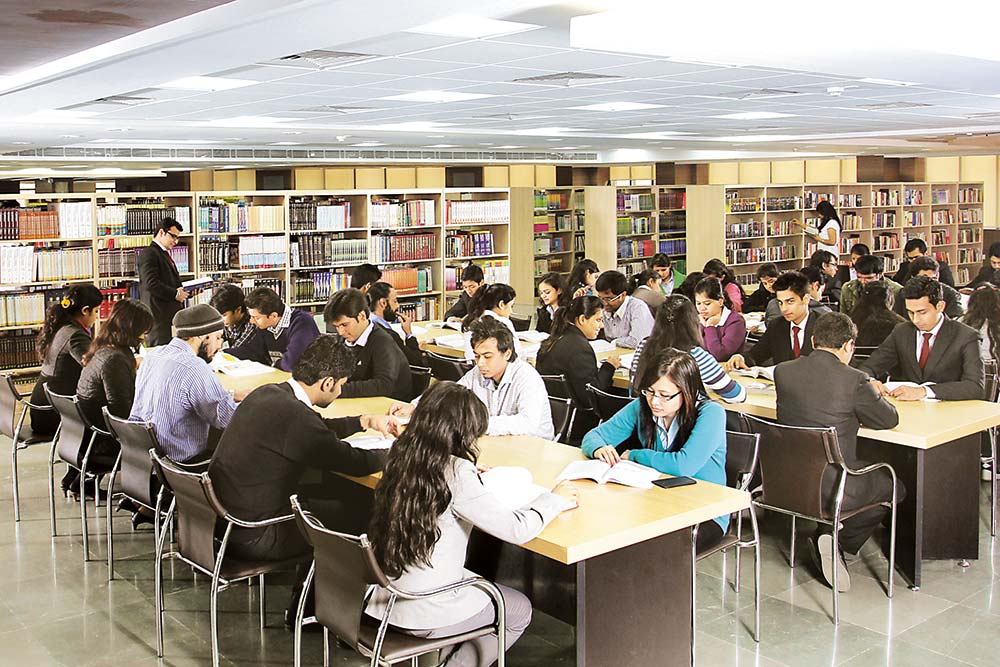Dr. Hakim Singh
In Aristotelian perspective, the leisure plays a significant role in liberal education and acquiring the knowledge for the sake of knowledge or to run the society or state in a better way. To achieve this goal. In a free time, citizens, an integral part of the state in his view,with the help of free timewould eventually bring the prosperity to the society. And this is how they could be helpful to the growth and development of the state.
But when one tries to apply his leisure factor to majority of current private universitiesin India, the picture seems very threatening. The organisations do not provide for private space or leisure time. However, majority of academicians/faculty find it difficult to find such spaces in their schools, departments especially under the private ownership.Within the provision of common room sitting, they face distractions, interruptions, and noise from other members of their departments or institutions. They also struggle to find places where they can work in solitude, without the fear of being interrupted or observed by others. As a result, they are made feel that their ability to carry out their work effectively is compromised. They are unable to find such working spaces because these institutions are designed primarily for business rather than academics or research. For example, many universities force their faculty to get the work done in a limited and shared office space. This confirms their policy of maximization of profit through minimum utilization of the resources. In such cases, faculty members working in open-plan offices,surrounded by other colleagues and administrative staff has become a common trend. Despite this arrangement may facilitate collaboration and communication, it makes difficult for academicians to concentrate on their specific research projects or assignments.
Another major reason that I feel for no private space is presence of unlimited and defused managerial/HR authority and censorship over the faculty behaviour.The regular gaze over the moment of academician or faculty has led to setup of controlled spaces rather than private one. The organizations prefer teaching and service over learning and research; quantity over quality and engaging the faculty for no matter over every significant matter. They are engaged not for their role but for why they should have free and private space. Their freedom and privacy are considered personal rather than a good for the institution. This is how without research, teaching in these places becomes nothing than a salesman’s task. Every single teacher is expected to manage multiple tasks-taking lectures, clerical, administrative, admissions, mentoring, etc. For example, in some colleges and universities, faculty members are expected to teach a four to eight full course load while also providing service to their departments and institutions through committee work, advising, advertising and other activities.
In addition, many academicians have limited resources for research support. For example, they may lack access to specialized atmosphere- library, equipment, information access, leaves that are necessary for their research. Without access to such resources, academicians may be forced to carry out their work in common spaces, such as common sitting rooms, where they may be subjected to noise and other distractions.
In such cases, it becomes difficult to carve out time for research, and may squeeze research activities between other responsibilities. It becomes next to impossible to expand one’s own mental horizon or to address the student’s quest for knowledge in this present technologically fast-growing society. At the end, one need to manage with limited knowledge as it cannotbe increased without research that demands free and private space.
But for a good academic future, every private university also has no option than having dedication for research and scholarship in its various respective domains of study. The nature of work crucial to their academic excellence also requires long hours poring over books, articles, and data.and to engage their faculty in such intellectually demanding discussions and tasks. Given the complexity and rigor of their work,their faculty also need such free and private spaces that provide them with the privacy, quiet, and comfort they require not to be only productive but progressive and contributing towards the common good.
Despite these challenges, one can put forward certainconcrete strategies that these universities can use to create a healthy working culture that meet their needs. One approach is to establish regular blocks of time for research and to recognise freeand private space also asprofessional or institutional. This may mean also differentiating between different nature of works and the related role players to streamline the work distribution and roles. Doing away from current defused and messy work conditions and by allocating specific times for research, a sense of discipline around their work, and avoid the tendency to procrastinate or to allow other demands to creep in can be created.
Finally, it is important to recognize that creating private working spaces and free zones are not only a matter of physical environment, but also nature of institutional policy, sense of recognition and security. The humanistic approach and relevant laws, goals, and priorities for the academicianscan create a sense of focus and concentration that allows them to be productive even in less-than-ideal working conditions. Ultimately, the key to achieve the status of university by any privategroup is to recognize the importance of leisure, privacy, academics, or research in its campusand to be proactive in seeking out and creating the spaces that support these needs and confirms neo-liberal’s own basic principle of de-regularization.
(The author is an Assistant
Professor at Political Science
Department, CT University Punjab)


